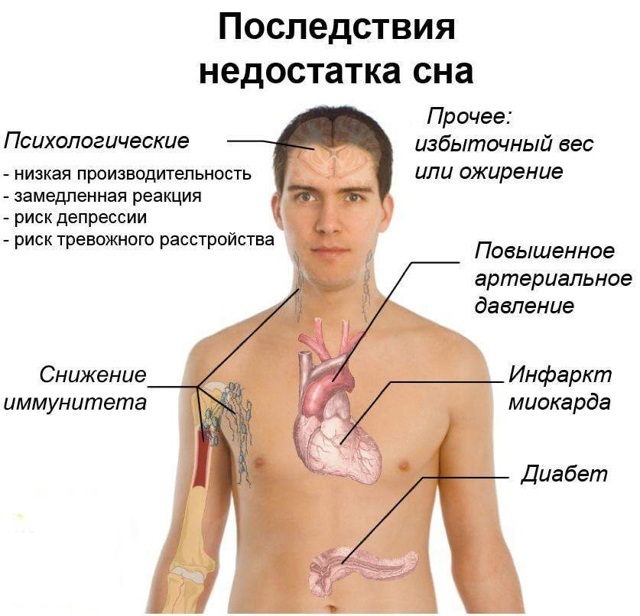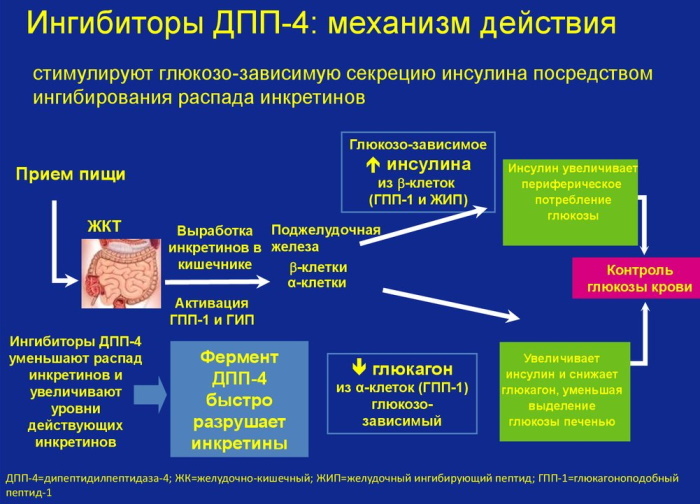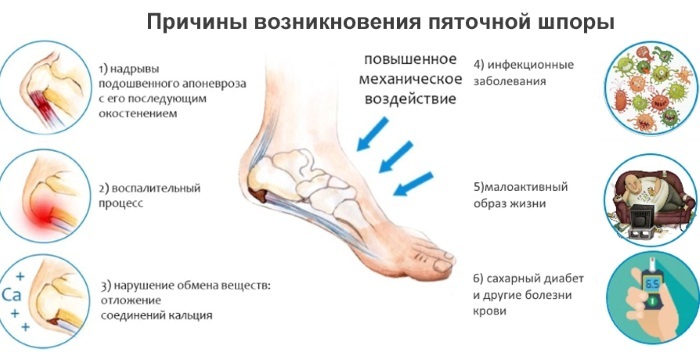Content
- Glomerulonephritis pathogenesis
- The first signs of glomerulonephritis and the main symptoms
- Glomerulonephritis reasons
- Classification
- Complications of glomerulonephritis
- Diagnostics of the glomerulonephritis
- Drug treatment
- When hospitalization is indicated, how is treatment carried out in a hospital setting
- The need for dialysis and the help of surgeons
- Diet for glomerulonephritis
- Treatment with folk remedies
- Glomerulonephritis video
Glomerulonephritis (glomerular nephritis) is a disease that affects both kidneys, namely the glomeruli. In most cases, autoimmune disorders are the main provoking cause. The diagnosis and treatment of glomerulonephritis in children and adults is carried out by a urologist. Without timely therapy, the patient will face serious consequences.
Glomerulonephritis pathogenesis
Glomerulonephritis is an inflammatory disease that affects the glomeruli of the kidneys. With the development of pathological processes, the permeability of the walls of blood vessels increases, microbes clog the lumens, thereby disrupting blood circulation in the kidneys. The filtering function of the organ is deteriorating.
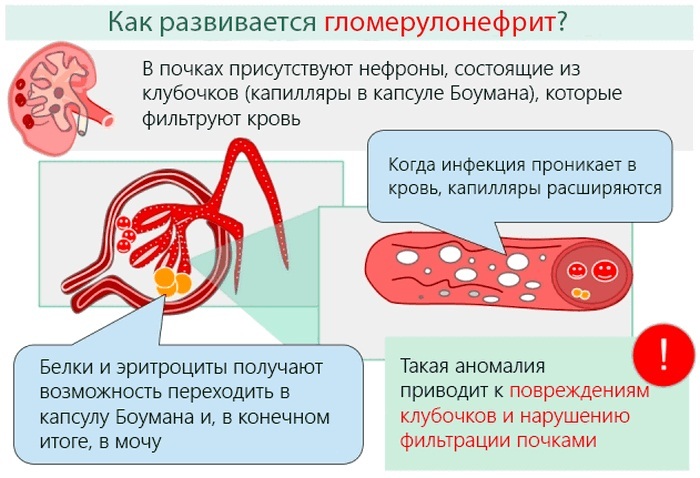
Pathological processes gradually develop and provoke the death of nephrons, as a result of which the volume of filtering blood decreases. Ultimately, renal failure develops.
The first signs of glomerulonephritis and the main symptoms
Clinical symptoms of glomerulonephritis in children and adults indicate the degree of development of the inflammatory process and the extent of the lesions of the urinary system.
As the pathology progresses, taking into account its course, the patient exhibits the following symptoms:
| Name | Symptoms |
| Acute glomerulonephritis |
|
| Subacute (fast flowing) |
|
| Chronic |
|
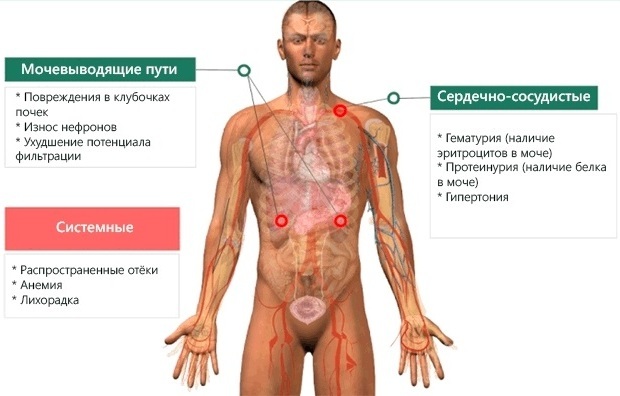
The danger of the disease lies in the fact that the functioning of the renal glomeruli worsens, as evidenced by external signs. The filtration process is disrupted, as a result of which blood, protein appears in the urine, and its volume also decreases. Therefore, at the first sign, it is important to go to the hospital to see a urologist and undergo an examination to make an accurate diagnosis.
Glomerulonephritis reasons
Glomerulonephritis in children (diagnosis of a pathological condition is required when the first signs appear) and in adults, in most cases, it provokes a streptococcal or staphylococcal infection.
However, there are other contributing factors that trigger the pathological mechanism:
- allergic reaction;
- viral infections (flu, pneumonia, scarlet fever);
- systemic pathologies (lupus erythematosus, vasculitis);
- chronic concomitant diseases;
- prolonged exposure to direct sunlight;
- unhealthy diet, abuse of salty foods;
- bad habits (drinking a lot of alcoholic beverages, drugs or smoking);
- blood transfusion;
- live virus vaccination;
- severe intoxication of the body;
- high humidity in the room;
- hypothermia of the body;
- kidney injury or damage;
- generic activity;
- taking certain medications.
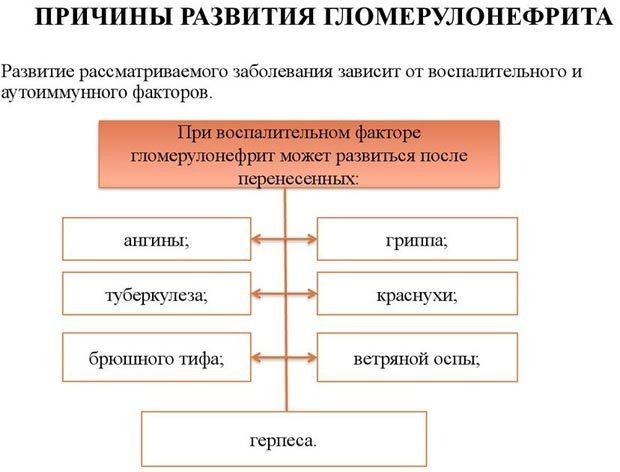
Poisoning with organic substances and radiation sickness also provoke the development of an inflammatory process in the kidneys. The same goes for hereditary predisposition and vitamin deficiency.
Classification
Glomerulonephritis develops in stages, at each of which certain pathological changes and clinical symptoms appear.
In medicine, the disease is classified as follows:
| Name | Description |
| With the flow |
|
| By etiology |
|
| By morphological changes |
|
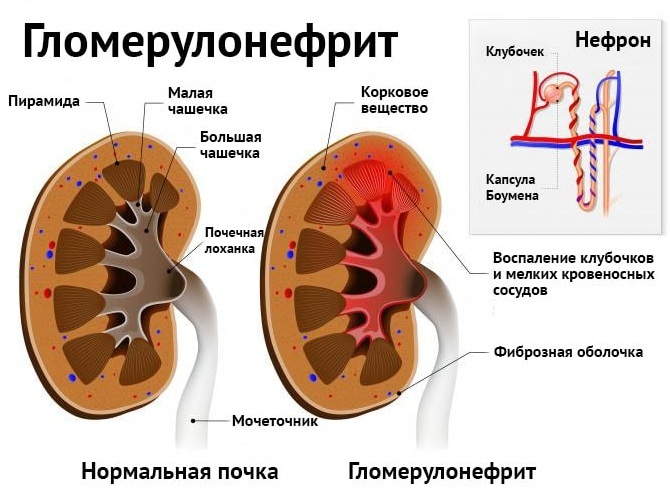 Each form of pathology is accompanied by characteristic clinical symptoms, which allows the urologist to establish a preliminary diagnosis and prescribe an informative examination for the patient.
Each form of pathology is accompanied by characteristic clinical symptoms, which allows the urologist to establish a preliminary diagnosis and prescribe an informative examination for the patient.
Complications of glomerulonephritis
Glomerulonephritis in children and adults cannot be left without treatment, since there is a high risk of serious complications and consequences, up to and including death. If the first symptoms appear, you should immediately consult a urologist or directly to a nephrologist.
Complications of glomerulonephritis:
- renal failure;
- nephritic encephalopathy;
- heart failure;
- uremic coma;
- atherosclerosis;
- stroke.
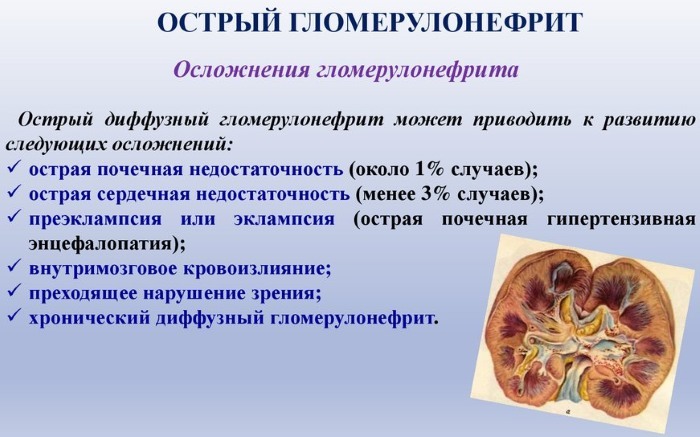
Against the background of glomerulonephritis in adults, the risk of developing concomitant infectious pathologies (boils, abscesses, bronchitis, pneumonia) increases. In some situations, in the acute form of the disease, vision is impaired. Chronic glomerular nephritis is difficult to treat, therefore it provokes the development of destructive processes in the kidneys. For the patient, this diagnosis means the onset of early disability.
Diagnostics of the glomerulonephritis
Diagnosis of glomerulonephritis in children and adults is carried out in a comprehensive manner in order to determine violations in the functioning of the organs of the urinary system and associated pathological processes. The examination is prescribed to the patient, taking into account the present symptoms and complaints.
| Name | Description |
| General and biochemical blood test | The results of the study will help assess the functioning of the kidneys, detect violations and deviations of standard blood parameters that occur during inflammation. |
| Immune analysis of blood serum | Laboratory research, which is carried out in order to assess the state of the immune system of the human body. |
| Analysis of urine | The test results show the presence of blood and protein in the urine. |
| Kidney ultrasound (ultrasound) | The specialist examines the size, structure and general condition of the kidneys to identify pathological changes. |
| Biopsy | The most accurate and informative diagnostic method that allows you to directly examine the kidney tissue. |
| Excretory urography | X-rays are taken using a contrast agent to assess the condition and function of the blood vessels in the kidneys, identify cavities, and view channels. |
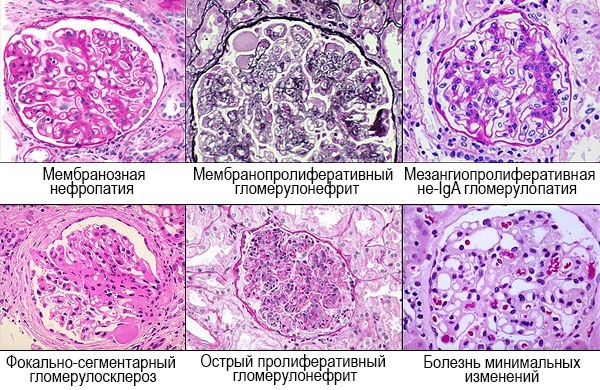
It is important to differentiate the disease, since many pathologies are accompanied by similar clinical symptoms (chronic pyelonephritis, amyloidosis, gout, tuberculosis, urolithiasis).
Drug treatment
Glomerulonephritis in children (early diagnosis of the disease will help prevent serious complications) and adults require comprehensive treatment taking into account the patient's complaints, the results of the study and individual characteristics organism. It is important to strictly adhere to the established dosages and recommendations of the urologist.
To combat the inflammatory process in the glomeruli of the kidneys, patients are prescribed the following drugs:
| Drug group | Name | Application |
| Anticoagulants | Dipyridamole, Heparin | Medicines improve blood circulation and prevent the risk of blockage in blood vessels. The tablets are taken on an empty stomach, washed down with a small amount of liquid. The adult dosage is 75-225 mg 2-3 times a day, depending on the patient's condition.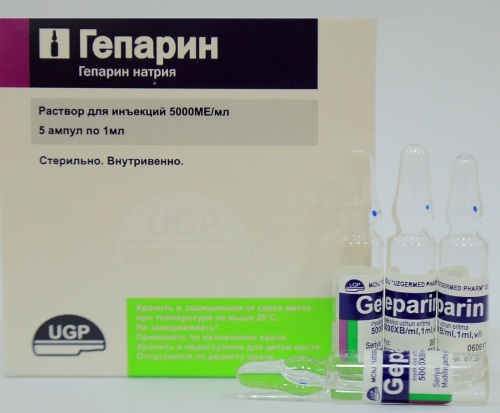
|
| Antiplatelet agents | ||
| Non-steroidal anti-inflammatory drugs | Indomethacin, Ibuprofen | The drug is taken orally after meals. The standard dosage for an adult patient is 25 mg 2-3 times a day. The minimum course of treatment is 4 weeks. If necessary, the drug is administered intramuscularly. |
| Immunosuppressants | Prednisolone, Cyclophosphamide | Medicines suppress the functioning of the immune system, slowing down the destruction of the kidney glomeruli. The dosage of the drug is selected individually, depending on the condition of the person. During the period of exacerbation of the disease, patients are prescribed 20-30 mg per day. |
| Antihypertensive medicines | Captopril, Enalapril | Medications help reduce high blood pressure. The dosage depends on the patient's condition and is 25-150 mg per day. The drug is taken on an empty stomach and washed down with a little water. |
| Diuretic drugs | Verapamil, Aldactone | The tablets are not chewed, swallowed whole and washed down with water. The standard adult dosage is 80 mg 3 times a day. |
| Antibacterial drugs | Amoxiclav, Erythromycin | Medicines are prescribed to patients when a bacterial focus of infection is detected. The tablets are dissolved in water (100 ml) before taking. Adult patients are prescribed 375/625 mg 2-3 times a day. The duration of therapy should not exceed 2 weeks. |
Patients must be shown bed rest, it is necessary to completely abandon any physical activity. It promotes the formation of toxic compounds.
When hospitalization is indicated, how is treatment carried out in a hospital setting
Glomerulonephritis in children (diagnosis of the disease will help assess the degree of damage to the organs of the urinary system) and adults in most cases are treated on an outpatient basis.
But there are certain indications for hospitalization in the nephrology department:
- the appearance of toxic complications in the patient;
- developing arterial hypertension, which must be monitored around the clock;
- differential diagnostics;
- acute impairment of kidney function (failure);
- clinical and laboratory activity of glomerular nephritis;
- control of treatment to achieve an effective and safe result.
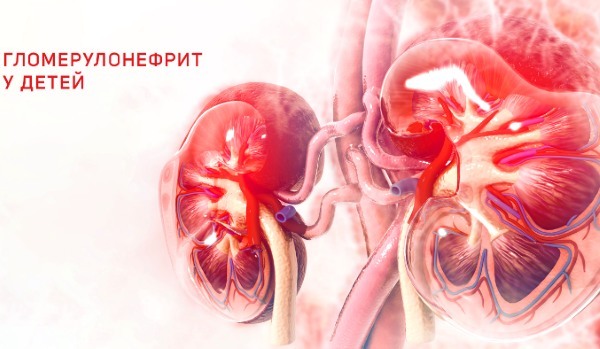
In a hospital setting, the patient is selected for immunosuppressive therapy and antihypertensive drugs. Patients should strictly adhere to bed rest until the swelling disappears and blood pressure is restored.
After the treatment of glomerulonephritis, the patient is registered, he needs dispensary observation for 3 years. During this period, a person visits a urologist, who conducts an examination, a survey and prescribes a preventive examination. There is always a risk of secondary relapse, therefore, as soon as the tests worsen, the patient is again hospitalized for specially selected therapy.
The need for dialysis and the help of surgeons
Rapidly progressive glomerulonephritis requires plasmapheresis. The procedure involves cleansing the blood. It is also prescribed to patients if glomerular nephritis occurs against the background of systemic pathologies.
In medicine, there are methods for purifying the blood outside the kidney (hemosorption and hemodialysis). We are talking about renal replacement therapy, which specialists resort to in the development of acute failure.
The patient will need the help of surgeons when serious disorders in the functioning of the kidneys appear. We are talking about end-stage renal failure. In this situation, organ transplantation is performed.
Diet for glomerulonephritis
Glomerulonephritis in children (the diagnosis of the disease is carried out using various studies) and adults are treated with complex methods. Diet food is one of the prerequisites. The inflammatory process in the kidneys disrupts the electrolyte balance of the blood. There is an accumulation of toxic substances, and useful elements are lost. The diet will stop the progression of this pathological process and also reduce the load on the kidneys.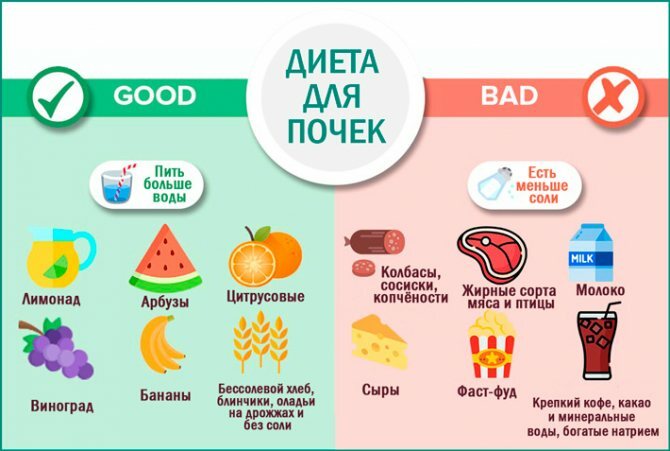
| Featured Products | Prohibited foods |
|
|
In addition to the dietary ration, the patient should refuse to consume table salt, and also reduce the amount of liquid he drinks daily. All dishes are recommended to be steamed or water-cooked, baked, stewed.
Treatment with folk remedies
Folk remedies for glomerulonephritis in children and adults can be used, but only in complex therapy, as an auxiliary treatment. Natural ingredients will not help to completely cure the disease, but will reduce inflammation, increase the body's defenses and resistance. We must not forget about the high likelihood of an allergic reaction or individual sensitivity. Therefore, it is important to discuss alternative methods of treatment with a urologist.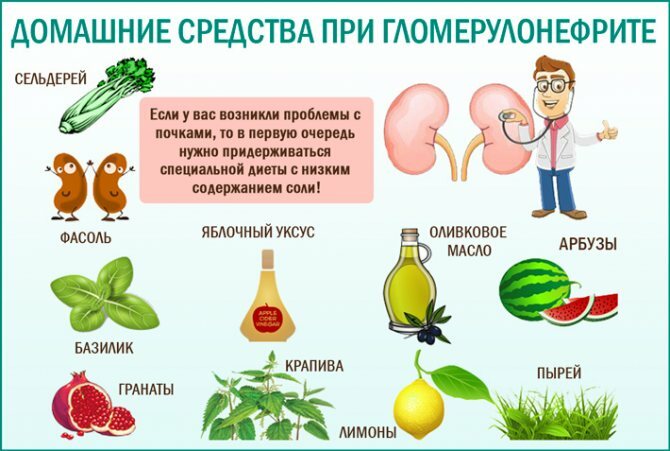
Effective folk remedies:
| Name | Recipe | Application |
| Herbal collection | Mix in equal parts the leaves of nettle and currant, parsley root, cornflower flowers and grasses. Grind all components well. Pour 1 tbsp. hot water (1 tbsp.). Put in a water bath and heat for another 15 minutes. Insist for 1 hour, strain and add water to get 200 ml. | The finished broth must be divided into 4 equal parts and taken during the day before meals for 30 minutes. |
| Ortosiphon | Pour 1 tbsp. dry herbs with boiling water (200 ml). Put the resulting mixture in a water bath and heat for another 15 minutes. Insist and strain. | The finished medicine is recommended to be taken orally in a warm form, 50-100 ml 2 times a day before meals for 20 minutes. |
| Elderberry flowers | Pour the inflorescences of the plant (1 tablespoon) with boiling water (200 ml). Insist for 30-40 minutes and drain. | The finished broth is taken orally, 50 ml 4 times a day, preferably on an empty stomach. |
| Sweet mix | Mix dried apricots, raisins, prunes, nuts and natural honey. Grind all components until a homogeneous consistency is obtained. | The resulting mixture is recommended to be consumed in 1 tbsp. 2 times a day, morning and evening. It strengthens the vascular walls, improves immunity and prevents the development of heart failure. |
| Corn silk | Mix 1 tsp. corn stigmas and cherry tails. Fill all components with hot water (500 ml) and leave to cool completely. Strain and take orally. | The resulting broth is recommended for patients to use 3 times a day, 50 ml each, preferably before meals. |
With glomerulonephritis, children and adults are advised to drink raspberry kvass, for the preparation of which plant leaves, sour cream, sugar and purified water are used. This drink should be drunk once a day, preferably before bedtime.
Glomerulonephritis is a serious and dangerous disease, especially for children. Their body is just developing, so it easily succumbs to the negative effects of external and internal factors. Timely diagnosis will allow you to identify the disease at an early stage and begin treatment in order to prevent serious complications.
Glomerulonephritis video
Glomerulonephritis in children:

